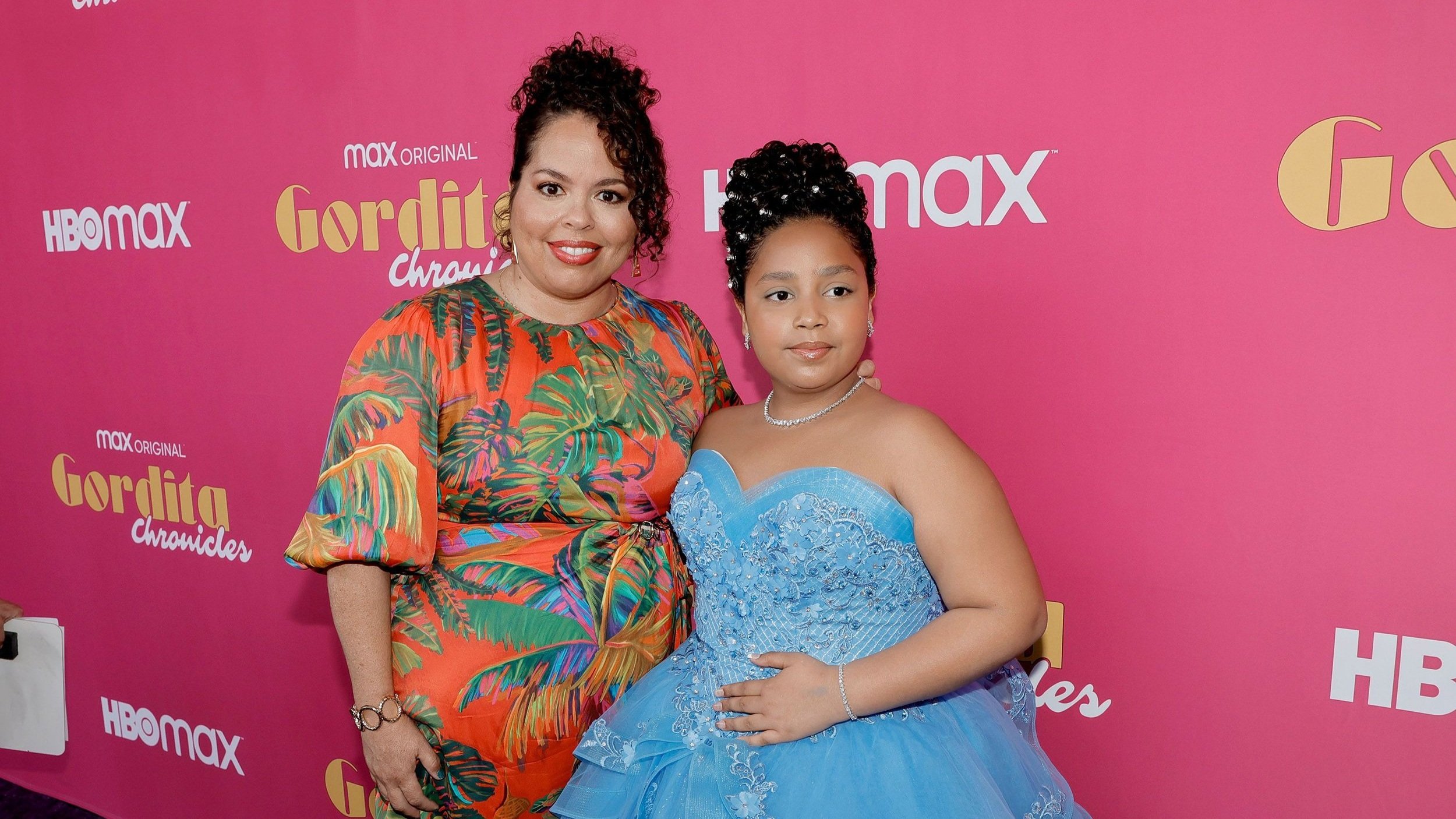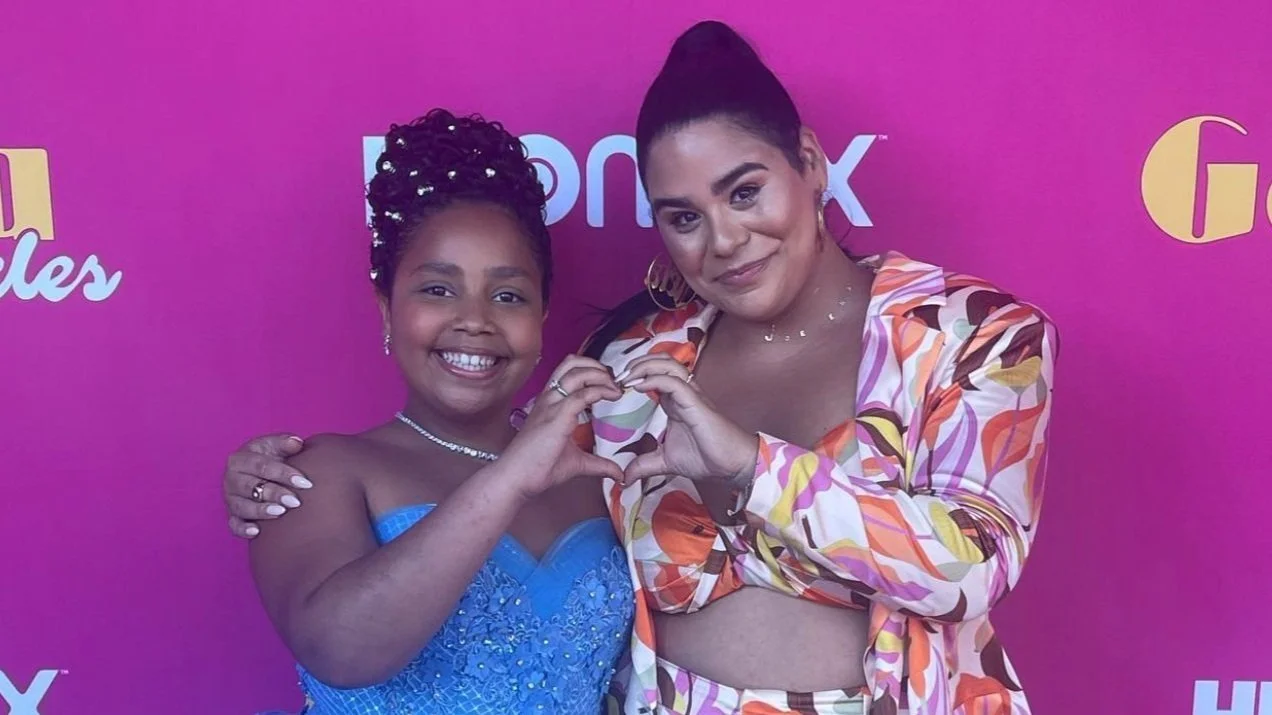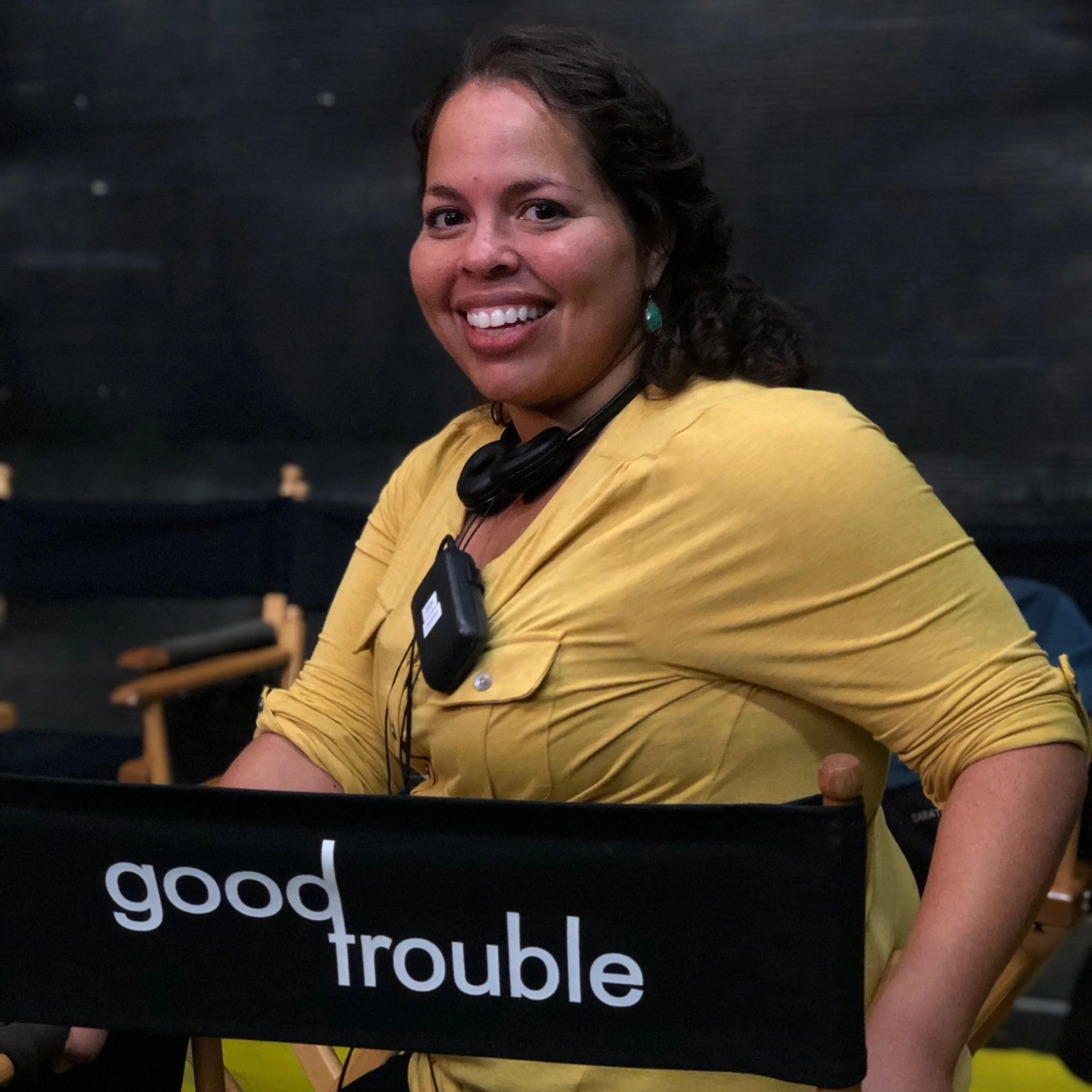Pop Culture Planet Podcast: Even The Gordita Chronicles Team Is Confused By The Show's Cancellation
In a new episode of the Pop Culture Planet podcast, Kristen Maldonado is joined by Gordita Chronicles creator Claudia Forestieri and actress Olivia Goncalves. They talk about their hit HBO Max series centered around a Dominican American family, being cancelled way too soon, and the lack of support for Latino-led shows.
Episode Quotes
Claudia Forestieri on falling in love with her Latino heritage: “Growing up in Miami, even though [I was] surrounded by Latin people, I considered myself an American girl. When I went to a place where I was suddenly the minority, and there weren't that many Latin people around, that's when I really started to appreciate my heritage. I started to gravitate to other Latinos or different countries and different places. I started getting into Latin music and ever since then I've just been head over heels in love with Latin culture.”
Olivia Goncalves on getting into acting: “I don't think I ever wanted to act until the opportunity came to me. […] I'm pretty sure every child has had this image in their head of what it's like to be famous or at least to be known or seen on TV and that was me when I was younger so I'm still in shock that I was able to complete one of my childhood fantasies.”
Forestieri on how she discovered her love of entertainment: “I grew up watching Oprah Winfrey and I thought she was amazing. I always wanted to be involved in TV and entertainment and I had no idea how to do it. […] I went into news because I figured Oprah got her start off in news and then she ended up queen of the world so maybe I could do that.”
Forestieri on pursuing writing: “It was very difficult, but it’s been worth all the sacrifice because I love it. It’s a huge privilege, especially getting to tell stories about the Latino community. It’s a lot of work. My family thought I was crazy when I moved out here to LA to pursue this, but they don’t think I’m crazy anymore.”
Forestieri on her mission: “I was always raised to be proud of my culture, my heritage, and I was surrounded by people who were also proud of their Latino heritage. I really wanted to reflect that in the scripts that I wrote. […] Part of my mission is to reflect the Latino community and also the populations of all cities because I feel like right now we're invisible. […] There's like 2 million Dominicans in New York and, most of the shows that you see that are set in New York, you'd be hard-pressed to find a Dominican character. So that's part of my mission and and that's what I try to incorporate into all the scripts that I write.”
Forestieri on writing Gordita Chronicles: “It used to be a one-hour script. It was a light drama like Selena: The Series, which I also wrote on. I wrote it not thinking that anybody would ever be interested in making a show. I wrote it as a script sample to get me jobs and then Frank Ochoa at Sony, who's Mexican-American, who understands how underserved Latinos are saw potential. […] He was like, ‘Hey, would you change it into a half-hour comedy?’ I wrote comedies too and I was like, ‘Are you kidding me? I'll change this into a musical! Like you think we could like get this show on a network? Let's do it!’ So Sony was always extremely supportive. They saw the potential in the story even before I did.”
Forestieri on Gordita Chronicles’ cancellation: “HBO Max decided that they no longer wanted to do kids and family shows, which is extremely upsetting. I'm still trying to make sense of it because I don't see why a network would want to cancel a show that's a hit and that succeeded viewership levels and been reviewed as well as it's been, but that's what's happening and I have to live with it.
Forestieri on HBO Max’s leadership changes: “I'm so happy that Gordita was received the way it did, but it's very heartbreaking because a lot of the people involved in Gordita Chronicles at HBO Max were let go and they were people of color. […] I'm just scratching my head over why it seems that the new leadership is taking this different route which seems, from my perspective, not to reflect the makeup of this country.”
Goncalves on getting support from her idol Jessica Marie Garcia: “If I was her daughter, I would be like, ‘Mommy can I get your autograph!’ I feel liker her character [in On My Block] portrays me so much. In the show she’s that one friend who’s like, ‘You’re in our friend group, but we don’t really want to talk with you right not because you’re loud and annoying.’ That’s me! […] In my friend group, when we laugh, I’m the loudest one. When we talk, I’m the loudest one. When we whisper, I’m still talking. It’s not that she gets left out, I don’t get left out. If I’m getting left out, I’d be walking myself back in. That’s exactly what she did.”
Forestieri on seeing higher up that know and appreciate Latino communities: “Having been through this experience, I’ve realized that as hard as we might work — behind-the-scenes, writing the show, and the actors might work and all these beautiful things can come together to create a great project — if we don’t have executives at the network that know our culture and appreciate our culture and see as equals that it’s going to be very hard to get more representation on screen. I used to think executives who run these networks are about the bottom line and they’re logical people. They’re business oriented. They don’t see color, they just see green, so if you can deliver and perform well, you can succeed. But now through this very painful experience, I realized there is a lot of subjectivity to these decisions that are made.”
Forestieri on the immigrant experience on screen: “One of the reasons I wanted to write about [Gordita Chronicles] was because I felt that immigrants needed to be humanized. Many times, especially during the last administration, when we would see immigrants it was in a very negative light. The few Latino characters on certain shows, some of them were immigrants that were doing not so wonderful things, which I felt didn’t really represent our population.”
Forestieri on the need for Latino executives: “Through this experience I've learned that we need more Latino executives, not only Latino executives, but executives that know and appreciate Latino culture. That don't see us as invisible people. […] They need to see us and they need to see the contributions that we make to this country and that we're important. Sometimes it just feels like they're running out of excuses not to include us and I don't understand why.”
Goncalves on how the lack of representation makes her feel: “There always will be something. They're gonna make something up every single time. I feel like they feel like we don't deserve to have our story to be told.”
Forestieri on working on Good Trouble: “Writing on Good Trouble was a wonderful experience and I was very fortunate to have that be my first writing staff because the room was really diverse. […] That was a really, really great introduction into what a writing staff could look like when you know they want to represent different groups.”
Forestieri on working on Selena: The Series: “Even though I never got to see the budgets and nobody sat me down […] it was a little heartbreaking just to see that it wasn't getting the same treatment as other Netflix shows. You see the budget of a show like The Crown and you see the budget of the show like Selena: The Series, you don't even have to see the numbers to see the disparities. […] [Selena] a huge impact. She was such a huge star and I didn't think that show should have been in the international section. I think because they labeled it International they were able to get away with doing a lower budget show, which was unfortunate, especially because Selena was an American girl. That’s just part of the bigger issue about them not seeing the potential in Latino shows and now really investing in them. On one hand, we have to be grateful that at least we’re getting these opportunities, but, on the other hand, it’s like when it there going to be more equity?”
Forestieri on rejection: “Sometimes rejection and getting no’s and doors slammed in your face can be a gift. It makes you realize how much you want it and in this business you have to really persevere. It took me nine years to get my first TV writing job and I thought it was never going to happen. Once it did, I was so prepared that — thank goodness, knock on wood — in the four years since I've been an official WGA card carrying TV writer I’ve gotten wonderful opportunities. Not everything has gone the way I wanted, but at least I’m in the game.”
Forestieri on her future projects: “Right now I have an overall with Sony and that means that I’m working on developing other TV show ideas. I don’t have anything yet that I can talk about, but I do have a couple of ideas that are inspired by my own life and there’s one show that’s a Sony property that we’re talking about reviving.”
Listen to more Pop Culture Planet, below:
Hosted by TV and film critic Kristen Maldonado, Pop Culture Planet is a video podcast featuring analytical pop culture discussions and interviews with diverse voices in the entertainment space. Watch episodes on youtube.com/kaymaldo or listen on your favorite podcast platforms, from Spotify to Apple Podcasts and beyond.







